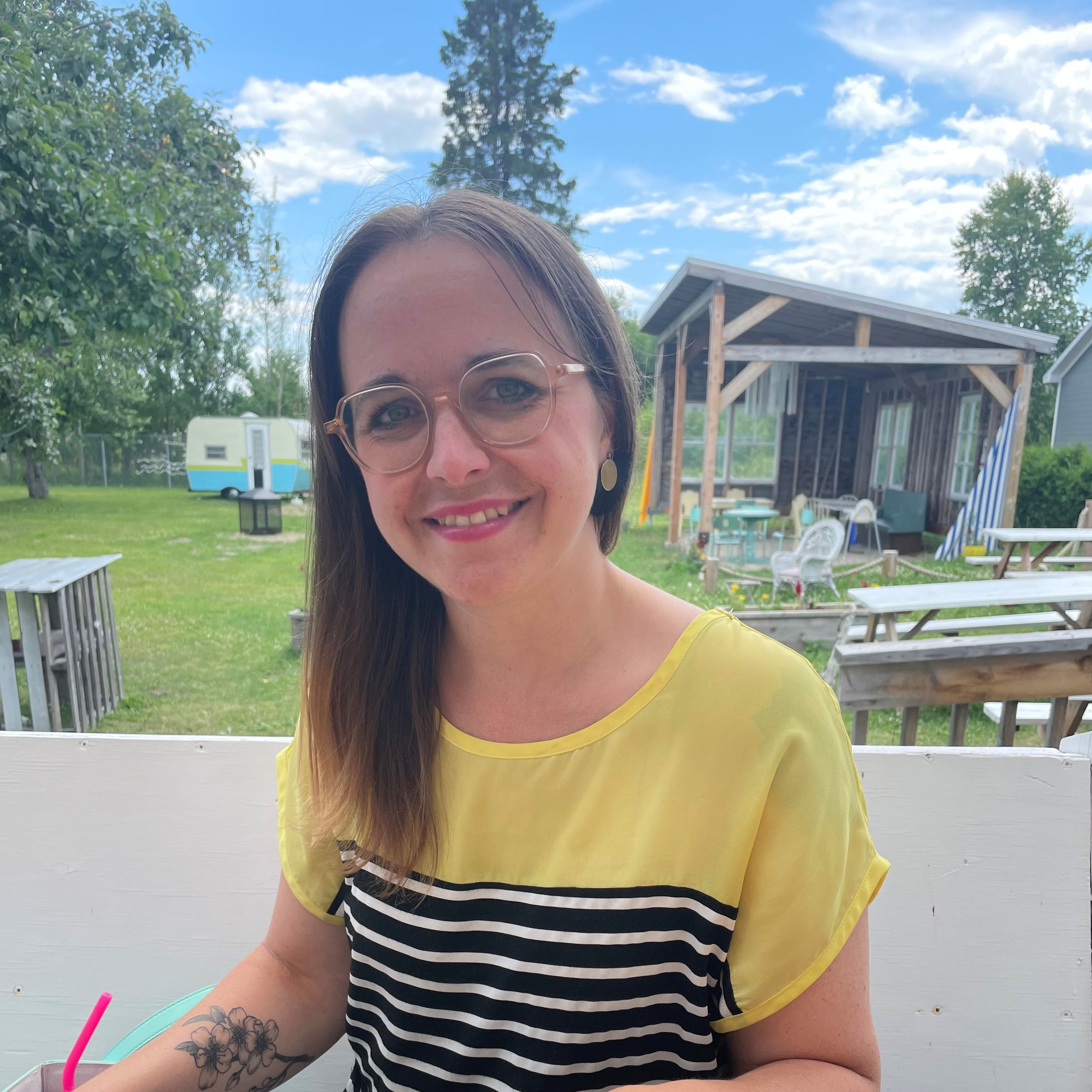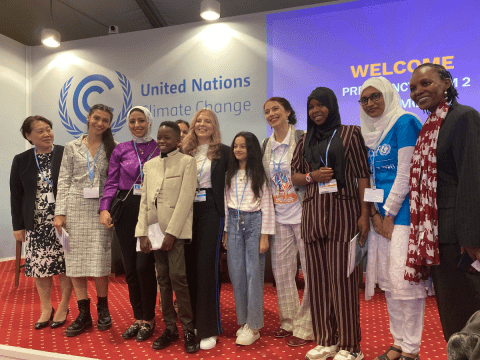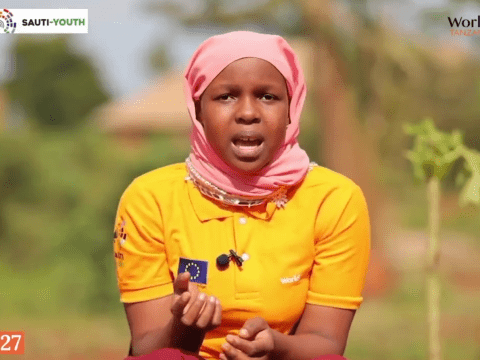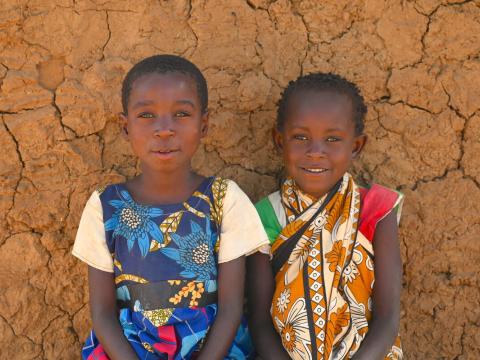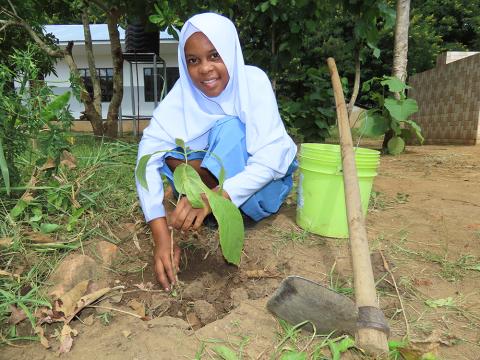
Bees, Trees and Children’s Needs
Happy Earth Day from the Adolescent Climate Action Group!
Teens have a lot to say about climate change. And, they have every right to be concerned and angry at the slow and inequitable action taken by the international community! At World Vision, we want to change this situation by listening to teens and learning what we can all do to improve the climate.
In the months leading up to last year’s international climate change meetings, COP27, we invited teenagers from World Vision programmes to work together and create a vision of meaningful child participation for climate action.
More than 25 young people between 15 and 18 years of age from eight countries collaborated virtually as part of the Adolescent Climate Action Group. This culminated in one member participating as part of World Vision’s COP27 delegation to Egypt last November!
But COP27 was just the beginning. The Adolescent Climate Action Group knew that their work was not done. We decided to keep meeting, sharing, and learning together.
In preparation for Earth Day, more than 35 children and teens met virtually to honour the achievements of the environmental movement and raise awareness of the need to protect Earth’s natural resources for future generations.
What better way to celebrate Earth Day than to spend time with and listen to the future generation itself?
These teens are members of networks and clubs that collaborate on climate action initiatives in their communities and countries. With names like “Eco-Heroes” and “Youth Climate Champions,” they are confident to work with their community leaders, like their parents, teachers, chief councils, and government representatives. For example, Carlos from Brazil pointed to his national Minister of the Environment, Ms. Marina Silva, as his role model and inspiration, as she fights for climate justice.
The members of the Adolescent Climate Action Group advocate in their communities both by raising awareness about the dangers to local ecosystems, and also by finding solutions and implementing them.
The Adolescent Climate Action Group highlighted three actions undertaken by climate action leaders:
- Do not cut down trees that are meant to provide food, resist the winds of storms, and provide good soil drainage during times of flooding;
- Motivate and educate about reducing fossil fuel use, planting diversified gardens and trees;
- Speak out and amplify others’ voices in climate action spaces to fight for a better future!
These young people are experiencing climate change firsthand. Some children from southern Malawi were unable to attend the gathering because of torrential floods resulting from a recent cyclone. They know that their voices need to be amplified and they are calling for others to join.
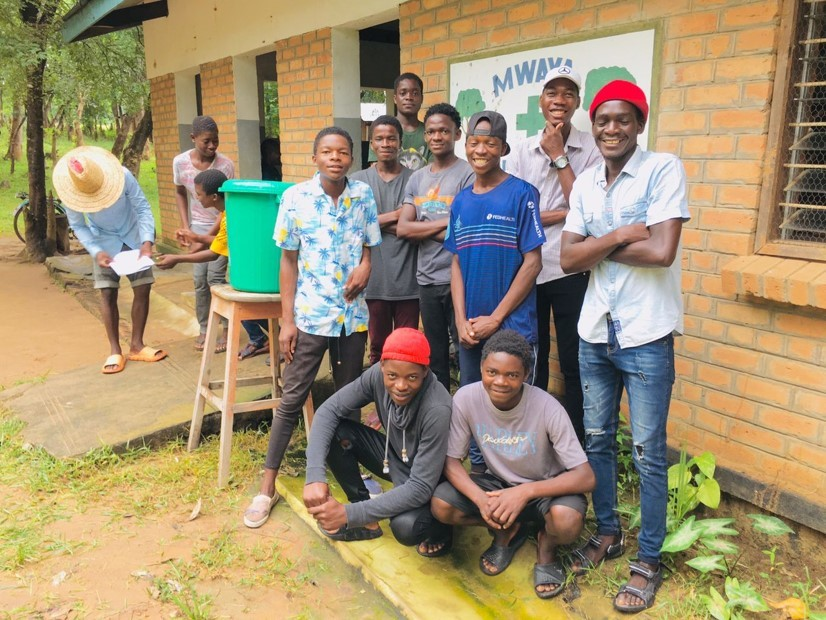
Teens from other parts of Malawi discussed the importance of collective action. Emilene from Ecuador spoke of her network’s advocacy for more adult support and better spaces for teens to speak of climate issues.
Said Silindzile from Eswatini, “Earth Day is one day a year, but it should be every day.” Her group, along with many others in southern Africa, talked about the importance of tree planting and beekeeping as priorities for promoting biodiversity, preventing erosion from floods, and raising livelihoods through honey and fruit tree production. They have solutions and are implementing them.
Celebrations for Earth Day will be happening across many countries in adolescent clubs and groups, bringing young people together to learn, celebrate, and advocate for youth-led climate action initiatives. Various examples of events and activities to celebrate Earth Day include: the Tanzanian based SAUTI-Youth clubs coming together for a day of activities and learning, the Ecuadoran youth-led climate network leading an advocacy event, and Zambian network of clubs hosting a Miss Conservation pageant to spread knowledge through a fun-filled event.
What else is World Vision doing to celebrate? Head to https://www.wvi.org/earth-day to discover some of our initiatives and stories of transformation. How will you celebrate Earth Day this year?
Julia Smith-Brake is World Vision’s Senior Adolescent Programming Specialist at World Vision
